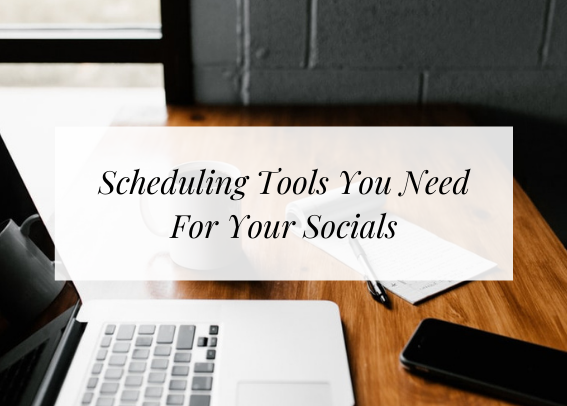Did you know there are around 200 different factors that influence your ranking on search engines? Getting your website to rank on page one of Google is no easy task, but a good place to start is having the right content on your website and the right keywords within that content.
What is a keyword?
Keywords tell Google and other search engines what your website is all about. Once Google knows what your website is about it can then suggest your website to searchers looking for businesses like yours or provide answers to questions related to your line of work. One of the ways search engines determine which websites to suggest to searchers is by scanning websites for these keywords.
Why is it important to include keywords in my website content?
By including keywords in your website content, and optimising your website for search engines your potential and current clients will be more likely to find your business online. This could bring you new business, present your business as a potential option to new clients seeking your services or just make it easier for your existing customers to find your website.
Where should I put my keywords?
Keywords and keyword phrases (around 2-4 words) related to your business, website and the content should be included in your website titles, headlines, subheadings, body copy and website code. These are not only important to improve your ranking on search engines, but are the words your audience are searching for and will relate to when reading your blog or website.
Here’s our guide to finding the best keywords for your website:
Developing a list of keyword
Start with the obvious words
Start off by selecting 5 to 10 root keywords for your website which are related to the services/product your business provides. Upload these keywords into a keyword tool such as Google’s Keyword Planner Tool or those we suggested in our recent blog How To Get Google To Love Your Website Content. These tools will give you an idea of what people are searching for and help you generate ideas for your keyword list. Start to build a spreadsheet of these keywords.
Search incognito
Do an incognito Google search and see what autofill options Google produces when searching the initial terms. An incognito search will allow you to search without Google taking into account your past searches and website visits. When you start to type a search term into Google it will guess what you are trying to type, in the search panel and create a drop down list of all the most commonly searched terms related to your search terms. This happens because Google wants to steer your search to high-converting keywords that are relevant to what it thinks you are searching for. To do an incognito type “incognito search” into Google.
Look at AdWords Copy
Run through your list so far and search these terms on Google yourself. Pay attention to the advertisements that display on Google at the top of the page. These are called AdWords ads. Take note of any patterns and repeating keywords that show up in these advertisements as these could be keywords you could add to your own list. You can also look at the top organic search results that appear in these searches and what sort of content is on the pages that display in the search.
Consider search intent
Once you have a decent list of potential keywords, review these and consider the searcher’s intent when searching for these terms. What outcome is the searcher hoping for? Are you using the exact keyword or phrase that your potential customers would actually type into a search engine? Consider the below forms of searcher intent and flesh out your keyword phrases based on these.
There are generally 3 types of searcher intent;
navigational – searching for a website or business, the searcher would type the name of the business or part of its name
Informational – searching for information surrounding a topic i.e. “house prices in Sydney”, “top sales result in Sydney”, “Best soy wax candles in Sydney”
Transactional – searching with intent to perform a transaction i.e. “sell my home in Sydney”, “buy soy wax candles in Sydney”
Check for competitiveness and popularity
Now that you have a list of potential keywords and phrases you should consider how competitive it will be to rank for these. The competition may be too strong for a particular term, or there may be gaps and opportunities to grab a pole position.
A commonly used keyword will be very difficult to rank for. There will be hundreds of thousands of websites using the term “real estate” so trying to rank for this is going to be nearly impossible. If there are a lot of large websites (websites that receive a lot of traffic) using your terms, the competition will also be high. Another aspect to consider is the popularity of the keyword. How many people are actually searching for this word every month? You might think you have a great keyword to use on your website but no one is actually searching for these keywords on Google.
Tools such as Google’s free Keyword Planner Tool will produce a competition and popularity rate for each of the words you have on your list.
The tool may tell you that in your specific location and industry, your keyword has a 90% popularity rate and also has a 90% competitive rate, so although it is a good keyword in terms of popularity, it might be hard to rank for this word as many of your competitors are trying to compete for traffic from this particular word.
Using a more niche keyword or a longer keyword phrase may be a better strategy for you if your website doesn’t receive a lot of traffic. Although these phrases may get less traffic, the people searching for them may be more specific to your business and therefore will be higher quality candidates. The sweet spot is finding a keyword or phrase that is low in competition but high in popularity.
Analyse and clean your list
Once you have done your research and have built up a spreadsheet of your terms, you can start to ask yourself the following questions in order to narrow these keywords.
- What keywords should I target for my home page?
- What keywords should I target for my main sub-pages and each lower page?
- What new pages can I create, or how can I restructure my website based on this new, relevant keyword data?
- How can I use this data to create a content calendar for my content marketing goals and blog posts?
- How can I use this data to identify strategic partners or guest-blogging targets?
- Are there any new niches I can focus on?
Need help with your digital marketing?
Chronicle Republic Communications is a boutique Sydney marketing consultancy for real estate, property and interiors professionals. We specialise in social media, content marketing, email marketing, blogging, search engine optimisation, social media advertising and much more!
We help our clients tell their brand’s story through engaging and meaningful marketing that captures attention.






